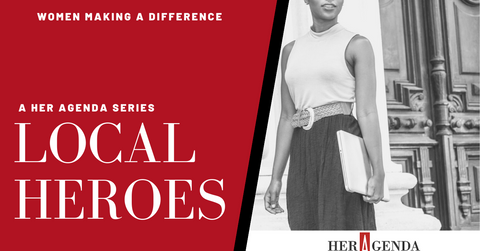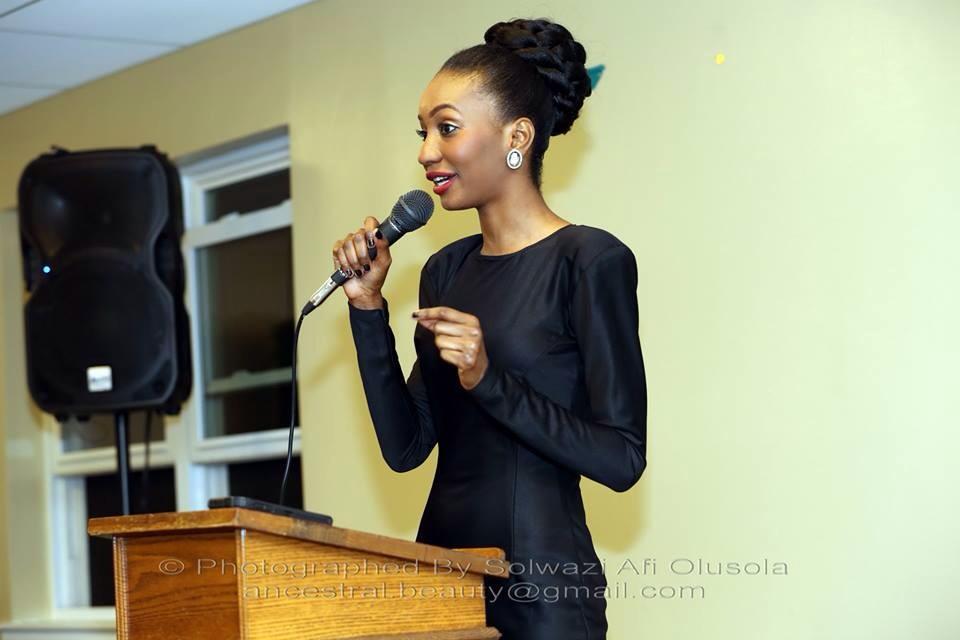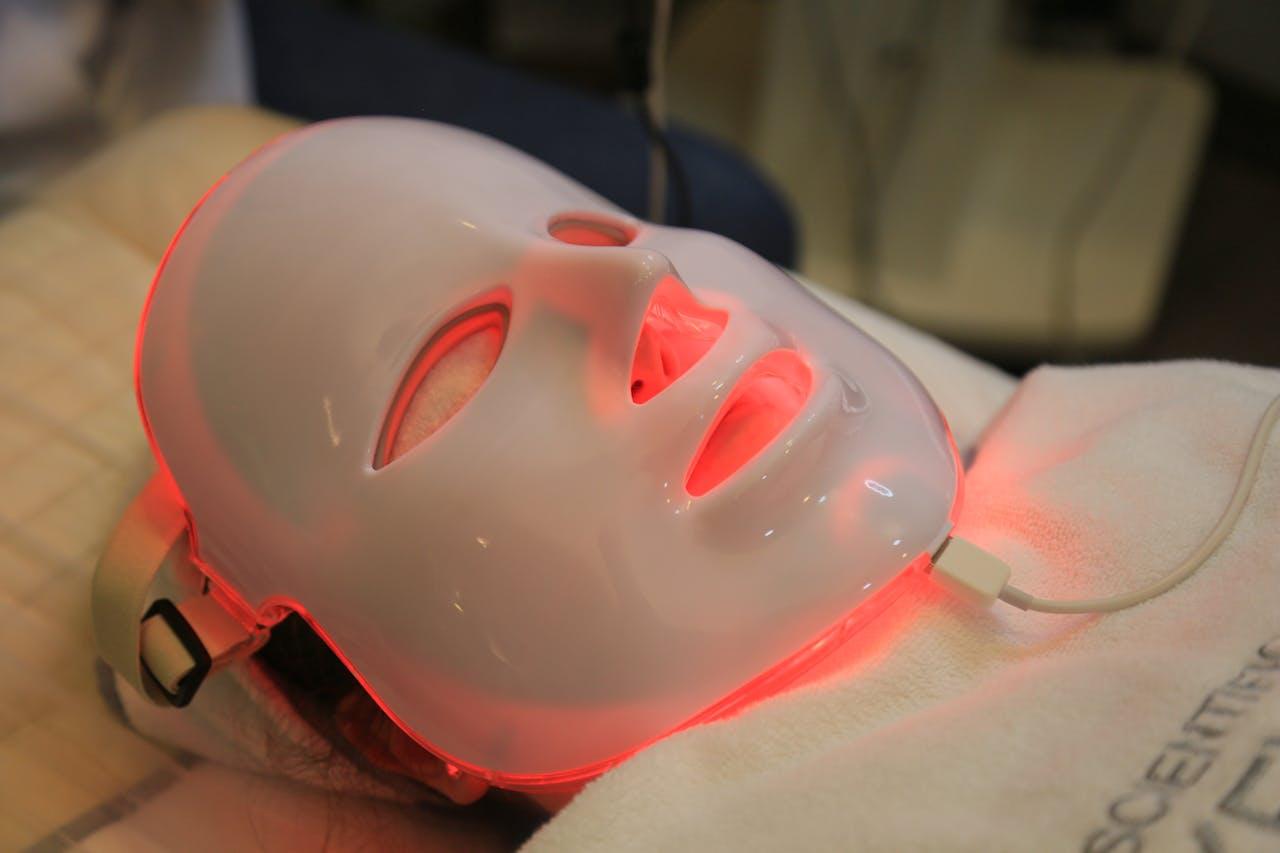LOCAL HERO: Oumou Cherif Launches COVID-19 Relief Project In Rural Guinea

This article is part of our Local Heroes series where we spotlight women who are making positive contributions to their community.

CEO/Founder of Children Education Alliance speaks at the annual Children Education Alliance Gala
As the efforts to fight COVID-19 continues to intensify, Oumou Cherif reflects on her response to the Ebola crisis in West Africa in 2014.
The cacophony of emotions she felt reading the news about healthcare workers unprepared to adequately treat patients during the outbreak. Standing in shock watching the news as swat teams of medical professionals in personal protective equipment transported lifeless bodies to overcrowded morgues.
The world was in a state of an emergency much like today, and this time around Cherif wanted to equip vulnerable communities struggling through the COVID-19 Pandemic.
Cherif, 28, is the CEO and founder of Children Education Alliance (CEA), a Massachusetts-based nonprofit organization that assists disadvantaged African children in their pursuit of an education by providing financial support towards school supplies. Founded in 2012, CEA provides assistance to thousands of primary school students in Kindia, Guinea, which is north east of the capital Conakry.
At the age of 11, she migrated to the United States from Guinea in 2003 in pursuit of a quality education, and through CEA her mission is to pay it forward. “It’s amazing how I came to this country and couldn’t read, write or speak English, now I’m here running my own non-profit,” she said. “America is blessed with an abundance of resources, and it’s important to focus the attention to communities where there are poor healthcare infrastructures, educational facilities, and no government welfare support systems.”
According to the U.S Embassy of Guinea, it has confirmed 9,526 cases of COVID-19 within its borders since March 12, 2020, and 60 hospital deaths and it’s steadily increasing. There are far more deaths from COVID-19 than the entire Ebola epidemic, so Cherif’s team launched a health awareness program to alleviate the fears and lack of public information and equip children, women and vulnerable people in these villages.
“With the help of our on-site team and volunteers, we provided more than 400 people with sanitary kits which include sanitizers, masks, water buckets, bleach, and soaps,” Cherif said. “Many of these families can’t afford to quarantine. Most people are day laborers or small business owners. The likelihood of them staying home is limited so the best we can do is help them implement strong hygiene and sanitation measures so they can apply all safety precautions in public settings.”
Cultural sensitivity plays a major role in how CEA tackles the community’s public health challenges. According to a report from the Centers for Disease Control and Prevention , a key lesson for a global response to a pandemic is that the cultural logic of different societies shapes and influences their prevention strategies. “In Guinea much like many countries in Africa value collectivist culture,” Cherif said. “We believe in strength in numbers. There is power in ‘we’ and not ‘I’. The homes in the villages are in close proximity to each other. The rooms are overcrowded, and at times families come together to eat from the same plate.”
Aminata Sylla, 17, is among the many whose families received aid through CEA. She says the organization educated her parents on ways they can reduce the spread considering how much they value family gatherings. “Things are not easy in Guinea, so it always feels good to know that people abroad care about us,” said Sylla. “CEA has helped us understand the meaning of self-care and prioritizing our health.”

The non-profit sector is growing in Africa despite common organizational challenges such as limited overheard investments, funder and grantee relations, and fundraising. Cherif credits her team both in Boston and in Guinea and donors for their efforts especially during this stressful economic period.
“CEA prides itself on putting the voices and concerns of the people first. Building relationships and collaborating with traditional leaders, students and teachers are our main priority,” she said. “There are times when I’ve had to take money out of my pocket to cover the costs to complete projects, but it’s all for the greater good. There are many unsung heroes working with limited resource and are making an impact in the non-profit sector.”
In the meantime, CEA is working on upcoming projects for school and classroom renovations. A couple of their successful projects include its 2014 “One Bench, Three Students” campaign providing 100 new benches for 180 students in Kindia. The other is the “School Supplies for 200” project sponsored by Suffolk University Institute for Public Service, distributing school supplies to 400 students at the École Primaire de Bamban in Kindia in 2019.
When she isn’t juggling multiple projects for CEA, she is the outreach coordinator for the Massachusetts attorney general’s office. She travels state-wide giving presentations on topics ranging from employee rights to work place discrimination for all constituents in Massachusetts including immigrants and low-income communities. “I’m in a unique position to motivate and educate these workers to understand their rights,” she said. “Many of them are afraid to speak out in fear of retaliation or citizenship status. When they see me, they see what they one day could become.”
She accomplished a lot a young age and praises her mother for her confidence and selflessness. “I’m an only child raised by a single mother. She doesn’t enable me. She is bold, assertive, has amazing work ethic and motivates others to rise up to their greatness much like myself. My message for every woman on a mission is when you do something great you will always be considered stubborn or difficult. Don’t ever allow the world to conform you.”






